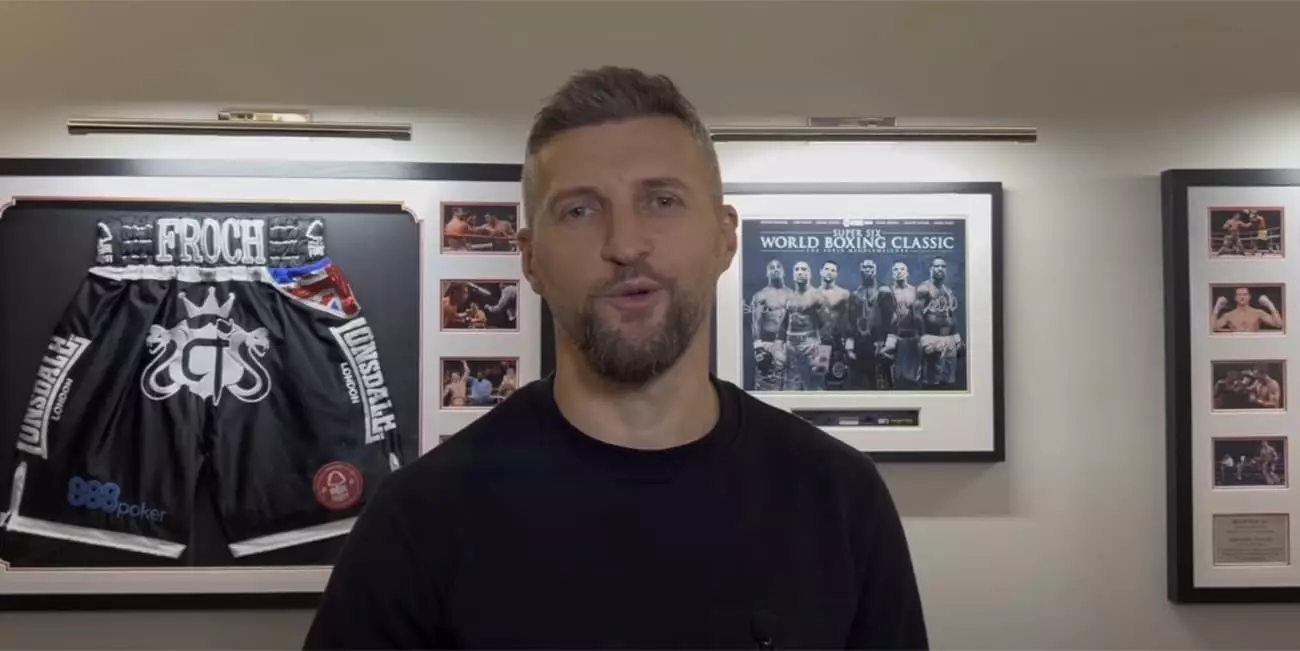Carl Froch, a name synonymous with tenacity in the boxing world, is now a Hall of Famer reflecting on his lengthy career while keeping a watchful eye on the antics of boxing’s newest star, Jake Paul. Recently, the 47-year-old Froch expressed a willingness to step back into the ring for an ambitious showdown with Paul, asserting that such a match would benefit the integrity of boxing. This sentiment raises pertinent questions about what it means to respect the sport in an era where celebrity and athleticism often collide.
Froch’s disdain for Paul is palpable. He doesn’t mince words when referring to the influencer-turned-boxer, labeling him a “little b***h” incapable of genuinely testing himself against worthy opponents. This is understandable considering how Paul’s bouts with seasoned fighters like Mike Tyson and soon, Julio Cesar Chavez Jr., have drawn criticism for not representing true competition. But can a fighter of Froch’s caliber still find relevancy in the ring against someone like Paul, whose marketability often overshadows actual boxing prowess?
The Allure of a Draw
Despite Froch’s reluctance to make a comeback purely for boxing’s sake, there’s a significant financial lure to a potential bout with Paul. The spectacle generated from the clash of a respected former champion against a contemporary social media powerhouse could draw enormous pay-per-view numbers. Froch is right to point out that while Paul might lack respect within traditional boxing circles, he commands an audience that is hungry for entertainment more than authenticity.
Boxing today straddles the line between sport and spectacle. A Froch vs. Paul match represents both—a chance to reinvigorate interest in boxing’s classic principles while tapping into modern-day showmanship. The conversation extends beyond mere statistics; it revolves around the evolution of boxing itself and its adaptability in a world that increasingly values character and charisma alongside athletic skill.
Debunking the Narrative
Critically, Froch’s critique of Paul resonates with many who hold the sport to high standards. Paul, in Froch’s eyes, may be unable to gain the admiration of boxing purists. Still, the reality is that Paul has effectively carved out a niche for himself, demonstrating a blueprint for how to merge entertainment with boxing. This raises a fascinating paradox: can a fighter who lacks classic fighting skills still be relevant if they attract massive audiences and generate substantial revenue?
Froch believes that every time Paul avoids a fight with him, it speaks volumes about Paul’s unwillingness to challenge himself against legitimate competition. Yet, it also underscores the marketing strategy that Paul employs to protect his undefeated record. Ultimately, boxing needs both traditional champions like Froch, who embody the sport’s rich legacy, and influencers like Paul, who draw in new fans and cash through innovative approaches.
The Bigger Picture
It’s vital to realize that Froch’s disdain for Paul’s approach may stem from a love for the sport itself, one that has shown him glory and humility. If Froch could navigate the complexities of fighting a current sensation without diminishing his respected legacy, he might be the one to blend traditional boxing integrity with modern-day appeal.
Thus, rather than dismissing Paul, Froch should consider that entering the ring now could potentially enrich his legacy while simultaneously helping elevate boxing back into the mainstream spotlight. The question remains: is Froch indeed willing to swap nostalgia for the thrill of a modern showdown? If so, it could be a game-changer for boxing in a world where the line between sport and spectacle continues to blur.

